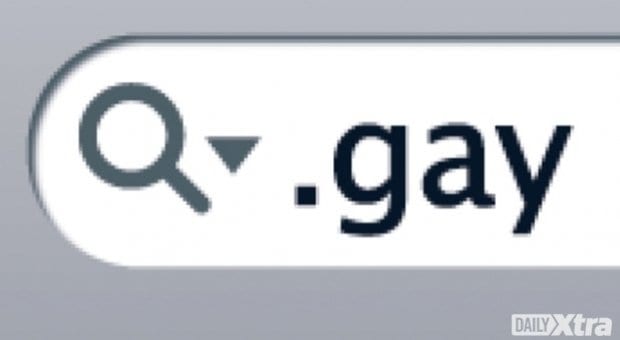One of the competitors for the .gay internet domain is speaking out against the sole community-based bid, alleging that it would harm the worldwide LGBTQ community.
Andrew Merriam, business development coordinator for Top Level Design LLC, criticizes the New-York-based dotgay LLC for trying to assert that they represent the gay community.
“They claim that their coalition is seven million people strong, but when you look at the global gay population that is potentially only a percent,” says Merriam.
Currently, there are about two dozen active top-level domains (TLDs) — not including geographic domains — on the web, including .com, .net, .org and .info.
That number is slated to increase dramatically — from a few dozen to more than a thousand — as the Internet Corporation for Assigned Names and Numbers (ICANN) looks to expand the pool of TLDs to include almost any term imaginable.
ICANN is the non-profit organization responsible for the global coordination of the internet’s system of unique identifiers like domain names (such as .org, .museum and country codes like .uk) and the addresses used in a variety of internet protocols that help computers reach each other over the internet.
While there are four competing bids for the .gay domain, only dotgay LLC has applied as a community-based group.
“We initially thought it was a given [dotgay LLC] wouldn’t be given community status because the community is so large and diverse we thought there was no way to create a fence around them,” Merriam says.
According to Merriam, the community application process was meant to only represent the interests of clearly definable community groups like Native American nations. Merriam objects to the use of gay as an umbrella term for LGBTQ, when he says that many people within those communities don’t self-identify as gay.
He also criticizes dotgay for working with the International Lesbian and Gay Association (ILGA) to file objections against the three other applicants for .gay and against the single applicant for .lgbt.
“It’s more than just them raising their hand and saying they don’t like it. They’ve invested a significant amount of money to go after that process,” he alleges.
The administrative cost for filing the community objection is $2,500 USD, plus there are fees and expenses for convening the panel to adjudicate the objection. While specific prices are not listed on ICANN’s website, other media have reported that costs for a one-person panel have been quoted at 50,000 Euros, and 150,000 Euros for a three-person panel. The loser in the objection process would be responsible for paying the fees.
Merriam is also critical of dotgay LLC’s attempt to paint their efforts as a charitable enterprise, by promising that 67 percent of their profits will be donated through a dotgay foundation.
“If they don’t report profits, or they redistribute their revenue internally, 68 percent of nothing is still nothing,” he points out.
“It’s very noble looking, but they’re not a non-profit; they are a for-profit entity. If they were really intent on doing that, they should have formed as a non-profit,” he charges.
Merriam thinks that dotgay’s entire model is problematic, especially since he says that only authenticated members of certain gay organizations will be able to obtain .gay domains.
“The whole idea of determining one’s gayness to get a .gay is kind of offensive,” he says.
“People who choose not to be involved with formal gay organizations or [whose] organizations aren’t accredited by dotgay won’t have any recourse to get a .gay address.”
In a written press release, Dotgay’s vice-president of marketing, Jamie Baxter, suggests that their competition is “disgruntled.”
“In the eleventh hour before ICANN renders their final decision, a competing .gay applicant is attempting to make a mockery of our community’s efforts and wishes by taunting press, writers and bloggers in our community with misinformation and lies,” he writes.
“Their goal appears to be focused on creating confusion, mistrust and up rise among us, the same community members who have been at the table helping to make the decisions with dotgay all along. Their purpose is to try to gain advantage by having ICANN view our community in bad light, with a lack of solidarity.”
Baxter says that his company’s record speaks for itself and that it has spent the last four years reaching out to community groups across the globe.
“The dotgay application is a product of the community, and one that we stand behind wholeheartedly. Simply making .gay domain names available to the public without any restrictions or safeguards is neither a ‘benefit’ or in the best interest of a targeted community, however our competitors see it differently.”

 Why you can trust Xtra
Why you can trust Xtra


